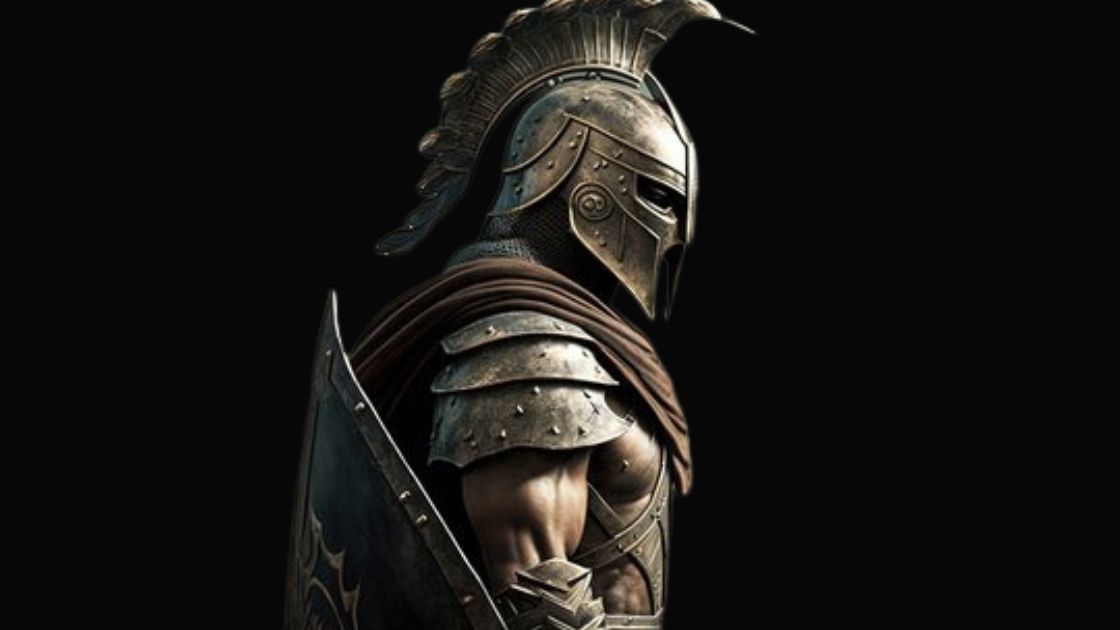The Spartan Way: The Indomitable Mindset of History's Fiercest Warriors
The ancient Spartans were renowned as history’s most relentless warriors. Their infamous military prowess struck terror in the hearts of their enemies across ancient Greece.
But the source of Spartan supremacy on the battlefield lay not only in rigorous training and skill. It stemmed from a unique cultural ethos – a way of thinking and being oriented wholly around martial excellence. This mindset set them apart from any opposing force.
Even centuries later, the iconic Spartan mentality offers timeless lessons on forging an indomitable spirit.
The Appearance of Invincibility
The appearance of the Spartan phalanx was calculated for maximum intimidation. Their scarlet cloaks and bronze armor gleamed brilliantly in the sun. Spartan warriors wore their long hair and beards long, bound back from their hard-chiseled faces.
Towering bronze helmets topped with crimson horsehair crests completed the terrifying spectacle. This striking image conveyed rugged power and cold-eyed ruthlessness. Their elaborate armor and ominous helmets projected an aura of invincibility.
Before a single blow was struck, the visual impact of the Spartans could break an enemy’s nerve and morale. As the historian Steven Pressfield wrote, their look inspired sheer terror in opponents, “as if they were fearsome monsters and not men.” The Spartans understood that victory begins in the mind, and did everything to gain psychological dominance before real violence even commenced.
Just seeing the Spartans approach was enough to make many opponents turn and flee. Never underestimate the power of sheer appearance to win battles before they begin.
Rituals to Transcend Fear
Spartans rehearsed and repeated focused pre-battle rituals to control fear. As units awaited orders to advance, soldiers went through familiar motions – reciting poetry, exercising, dancing, tending weapons and armor. The endless repetition over months and years implanted these rituals deeply into the Spartan mind.
Rhythmic music kept their marching in unison as they advanced. This atmosphere of intense preparation produced a battle trance that carried Spartans forward without hesitation into the maelstrom of combat.
The historian Paul Rahe described how through rigorous drilling, these pre-battle rituals became “second nature” to the Spartans, allowing them to fight without fear. While opposing armies trembled in the face of violence, the Spartans remained eerily composed. Mental resilience was forged along with physical strength.
Reverence Towards Invisible Forces
Though brutal and unforgiving, Spartans were far from godless. Oracles and rituals maintained their humility towards forces beyond mortal control.
Consulting oracles and making sacrifices before battle reminded Spartans that fate governs all outcomes. External influences could render even the most carefully laid plans worthless. The wisest generals understood victory went not necessarily to the strongest, but to those most favored by fortune.
This instilled a mentality to fight with every ounce of courage, while accepting whatever destiny held with stoic calm. A true warrior embraces fear of the unknown rather than denying it. The Spartans knew invisible hands shaped their destiny as much as martial skill.
Embracing Hardship as Virtue
Spartan training was designed to harden body, mind and spirit through relentless hardship. Deprivation of food, clothing and comfort conditioned Spartans to embrace suffering that would break ordinary men.
Spartan youth were deliberately underfed to encourage food foraging skills. They were barred from wearing shoes to toughen their feet on rough terrain. Physical weakness was not tolerated. Through this continual exposure to hardship and want, Spartans learned to treat discomfort as a virtue.
This refusal to yield, this ability to endure any trial, transformed privation into advantage on campaign. Enemies expecting weakness were demoralized to encounter only unbreakable strength. When other armies became exhausted and demoralized by prolonged hardship, the Spartans only became more resolute. Resilience was their secret weapon.
Brevity and Focus of Thought
The Spartan dedication to brevity and pithiness extended beyond their famously terse verbal replies. Their manner of thinking also cut through surface distractions to essence.
Years of silence, solitude and concentration during rigorous training cultivated internal focus and reflection. In battle, decisions were rapid and actions reflexive. Their minimalist style produced swift, unerring choices guided by subconscious instinct rather than panicked overthinking.
As the historian Karl Muller described, the Spartan communication style encouraged deeper thought over excessive speech. Saying less helped them think more. Their economy of language was mirrored by an economy of mind. Laser focus on the task at hand enabled clarity of action.

Mastery Through Specialization
Spartans focused their entire culture around producing unmatched combatants. Young citizens underwent years of full-time intensive physical and mental training to forge elite warriors.
They learned nothing but the arts of war from dawn to dusk. This military specialization was embedded in their upbringing from the cradle onwards.
Adult Spartan habits likewise revolved around maintaining continuous combat readiness. Decades of total immersion in warfare made it as instinctive as breathing. Violence became second nature.
This utter unity of purpose gave Spartans an unrivaled edge against part-time amateur armies. They became masters of their lethal craft in a way no other force could match. Their skills were honed through a lifetime of discipline and repetition.
The Mentality of Absolute Victory
The iconic Spartan mindset was oriented entirely around defeating the enemy. The individual embodied the unrelenting will of the phalanx – to conquer without question or hesitation.
On the battlefield, Spartans fought to the death, never retreating or surrendering. They lived by the motto “With it or on it” – come back victorious with your shield, or dead upon it. As Plutarch stated, Spartans never broke in battle but fought with uncompromising courage to their last breath.
This mentality – that defeating the enemy was the sole acceptable outcome regardless of risk – gave Spartans a decisive advantage. Other warriors always kept one eye on escape should the fight turn against them. Spartans remained utterly committed to victory or glorious death.
This refusal to countenance retreat, this complete dedication to offensive battle, made them feared throughout the ancient world. The Spartan mentality was to stand resolutely with your comrades and fight with reckless abandon. Anything less than total victory was unacceptable.
Legacy of the Spartan Mindset
The Spartan legacy continues to inspire devotion to martial excellence, discipline under extreme hardship, and self-sacrifice for the greater good. Their example remains as relevant today as it was millennia ago.
The timeless virtues of the Spartan system – self-mastery, solidarity with comrades, contempt for false luxuries – provide lessons for warriors and non-warriors alike. By conquering inner weakness, we gain strength to shape the world. Hardship ceases to be an impediment and becomes an advantage. Out of the cauldron of difficulty is forged an unbreakable spirit.
This was the great gift of the ancient Spartans – a peerless mastery of mind and body honed by pitiless effort. Their memory lives on not just in legends of battle but in their code of excellence passed down through centuries. None before or since has matched the raw courage, discipline and ferocity of history's consummate warriors.





Leave a comment